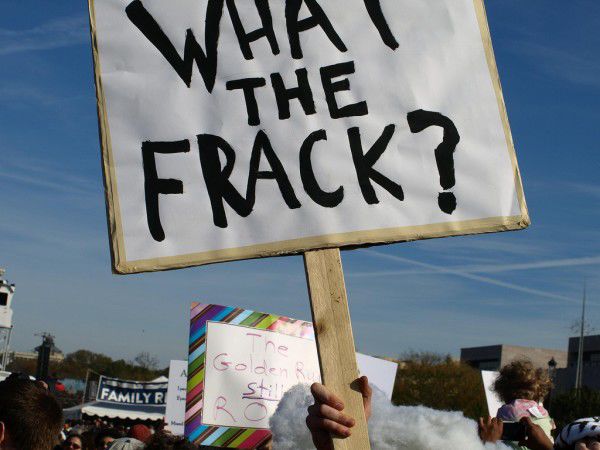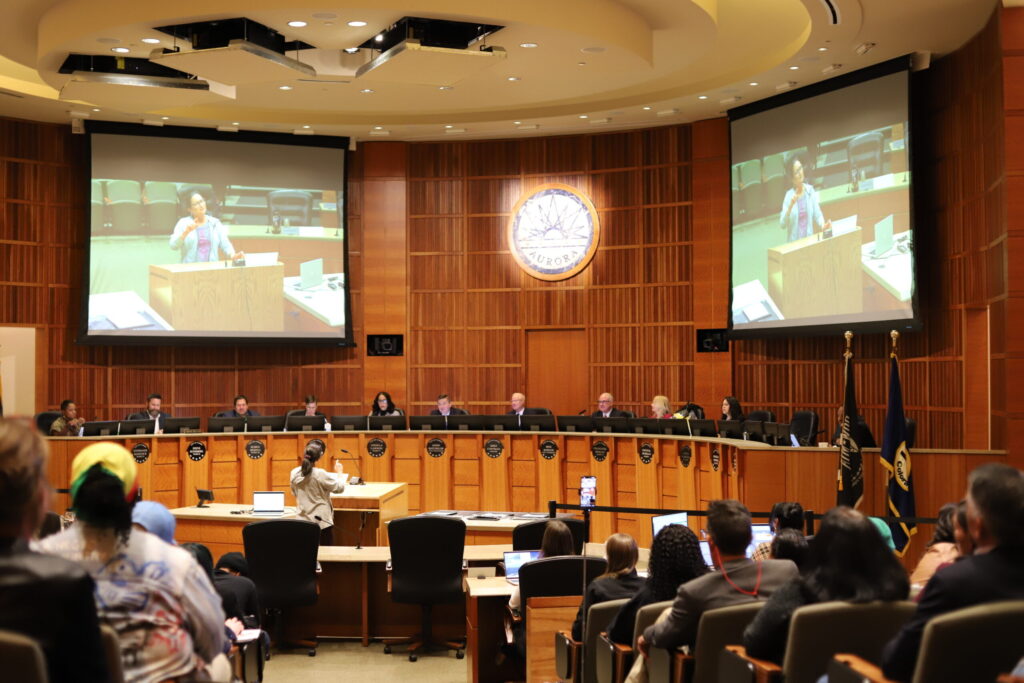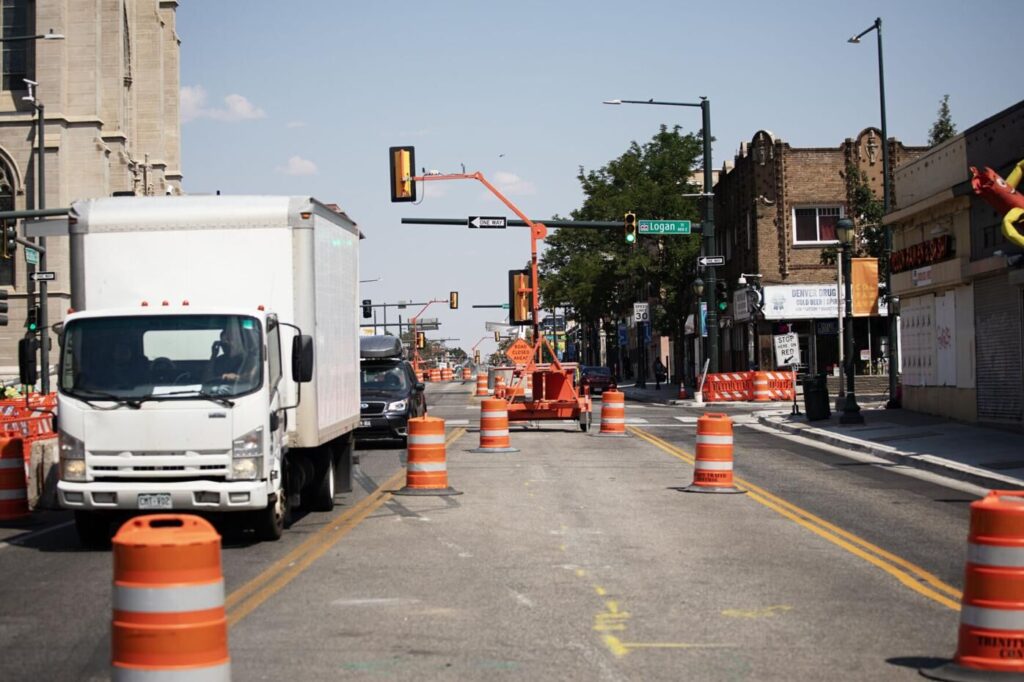Oil & gas measures fail signature test, appeal considered


It’s official, the fight against fracking has reached a dead-end in this 2016 election year in news perhaps not surprising to Colorado Democrat Gov. John Hickenlooper. The governor this week predicted the demise of two ballot initiatives that would have sought to limit hydraulic fracturing operations in the state. Turns out he was right. Neither of the two measures proposed by anti-fracking activist groups will appear on the November general election ballot after the Colorado Secretary of State’s Office determined not enough valid signatures had been turned in by advocates to accomplish that goal.
Anti-fracking groups allege an “unprecedented” amount of opposition funding and harassment of petition signature collectors by oil- and-natural-gas-backed opponents helped to keep the two proposed measures off the ballot.
But an opposition group said otherwise, issuing a statement that “celebrated the downfall” of both measures, and said the “failure to so much as make the ballot suggests both incompetence on the part of the campaign, as well as a lack of appetite for economic destruction on the part of Colorado voters.”
The claims and harsh words came Monday, after Colorado Secretary of State Wayne Williams announced neither Initiative 75 nor Initiative 78 had enough valid voter signatures to be placed on this year’s ballot for state voters to consider.
All citizen-backed initiatives must submit signatures from 98,492 registered voters. Supporters of the two measures collected more than that for each proposal, but not enough to compensate for the number of signatures rejected during a random sample, as well as potentially fraudulent signatures detected by the secretary of state’s office.
Initiative 75 would have given local governments the authority to regulate oil and gas development, including banning hydraulic fracturing. Initiative 78 called for a mandatory 2,500-foot setback around oil and gas operations.
Backers have 30 days to appeal the decision in Denver District Court. Secretary of State spokeswoman Lynn Bartels said since the signatures for both measures were submitted on the Aug. 8 deadline, they do not qualify for a 30-day “cure” period. That sometimes allows backers to gather more signatures in an attempt to make up the difference and qualify a measure for the ballot.
“Not going to stop fighting”
Lauren Petrie, Rocky Mountain Region director for Food & Water Watch, said her group and other supporters “are not going to stop fighting for the right of Coloradans to fight” for their rights to control energy industry development.
“We are considering a challenge,” Petrie said. “We were disappointed (not enough signatures were valid) because we did our own random sampling during the gathering and we were at 85 to 95 percent, so we’ll look at a challenge.”
Petrie said the industry “made the signature-gathering process as hard as they could.”
“We had to overcome an unprecedented amount of money spent on TV ads against us, they had people urging others to not sign our petitions and harassed the folks we had out just trying to get people to sign the petitions,” she said.
Petrie called the actions an “unprecedented attack on our democracy. It was just sad and shameful. No other campaign for any issue had to put up with so much money spent against just getting signatures, no other campaign was yelled at while our volunteers were just talking to people” about the two measures.
While backers did hire paid circulators toward the end of their efforts, most were obtained through what Petrie called a “tremendous volunteer effort” to gather over 200,000 signatures.
“I think that is still pretty incredible,” she added.
A huge fundraising advantage for the industry was also a big hurdle, Petrie said.
“We might have been outspent by something like 35 or 50 to one,” she stated.
Failure shows “incompetence,” other claims don’t stand up
A statement from Kelly Maher, executive director of Compass Colorado, a center-right, free-market advocacy organization based in Denver claimed “Both Initiatives 75 and 78 would have grievously harmed one of the most important economic drivers in our state. Their failure to so much as make the ballot suggests both incompetence on the part of the campaign, as well as a lack of appetite for economic destruction on the part of Colorado voters.
“Coloradans support responsible energy development, full-stop. The health of our state’s energy industry corresponds directly to the financial well-being of all of us. Voters would have almost certainly sent both measures to the curb, so if nothing else, the secretary of state’s announcement this morning saved Colorado taxpayers some additional printing costs on their ballots this fall.”
In an interview with The Colorado Statesman, Maher said the so-called “Think Before You Ink” campaign that targeted prospective petition signers of the two measures “probably changed how these campaigns will be done in Colorado from now on.”
“I think it’s important that voters really understand what they’re doing when they sign their name,” Maher said. “They’re not just putting the issue on the ballot like the people getting signatures say. They’re really helping these large, expensive campaigns that are funded by out-of-state groups that come into Colorado and try to change things that could be very, very damaging to the state’s economy.”
Maher also said the complaint that backers were heavily outspent “sounds like sour grapes to me.”
“I’ve never heard about these harassment and other accusations before,” she stated. “So it’s kind of complaining after the fact. I also think that when you have measures like these, which would unquestionably destroy our economy, it’s understandable that there would be groups that step forward to pay for the grassroots work” against the measures.
“I just think these arguments fall flat,” Maher added.
One group inside the opposition movement’s control room, Protect Colorado, said the measures failed for one simple reason: Voters recognized a bad deal when they saw one.
“Colorado voters recognized that these extreme measure would destroy the state’s economy and take away private property rights,” said Karen Crummy, communications director for Protecting Colorado’s Economy, Environment, and Energy Independence. “The voters read the petitions and declined to sign them because they understood the devastating consequences these initiatives would have on all Coloradans.”
Crummy painted a bleak and damning picture of what might have happened if the measures had made it onto the ballot and subsequently passed. “Disguised as reasonable setbacks and increases in local control, these extreme initiatives would in reality have eliminated 90 percent of all oil and natural gas development in the state, she said in a statement. “This would have cost the state $140,000 jobs and $217 billion in economic activity over the next 15 years, according to an analysis by the University of Colorado Boulder Leeds School of Business.”
But Pete Maysmith, executive director of Conservation Colorado, depicted an equally austere situation if something is not done to curb the practice of fracking in the state. “Without solutions, oil and gas issues will continue to fester, grassroots outrage will continue to grow, and the oil and gas industry will continue to lose its credibility,” he said in a statement. “Conservation Colorado remains committed to working with and on behalf of communities that are suffering from the impacts of oil and gas development, and elevating their voices in the face of massive spending from one of the most powerful industries in the world.”
Ballot measures set for election
The secretary of state said petition signatures are reviewed by another state agency under the Department of Personnel and Administration. A 5-percent random sample must project the number of valid signatures to be greater than 110 percent of the total number of signatures required for placement on the ballot.
Of the 107,232 signatures submitted for Initiative 75, the review found just 79,634 projected valid signatures for Initiative 75. And the review for Initiative 78 found just 77,109 projected valid signatures out of 106,626 submitted. Each measure needed 98,942 valid signatures from Colorado voters to make the ballot.
The secretary of state’s office also noted that a petition processing team identified a petition section for Initiative 78 that contains several potentially forged signature lines. The issue was referred to the attorney general’s office for investigation.
The energy proposals were among nine citizen-initiated measures submitted for the November ballot. The seven successful efforts that were successful, along with the number of submitted signatures and the projected percentage of required valid signatures, were:
No. 20, State health care system: 158,831 signatures, 110.80 percent
No. 101, State minimum wage: 189,419 signatures, 116.70 percent
No. 145, Medical aid in dying: 155,676 signatures, 110.44 percent
No. 96, Requirements for constitutional amendments: 183,691 signatures, 129 percent
No. 143, New cigarette and tobacco taxes: 161,412 signatures, 118.74 percent
No. 98, Primary elections: 147,707 signatures, 110.15 percent
No. 140, Presidential primary election: 152,213 signatures, 111.39 percent
A section of signatures for the minimum wage effort was flagged for having potentially forged signatures and turned over to the attorney general for investigation.
Also on the ballot are two measures referred by the Colorado General Assembly: Amendment T, regarding servitude; and Amendment U, regarding property taxes. In addition, the Denver Metro Scientific and Cultural Facilities Board put Ballot Issue 4B, a sales-and-use tax measure, on ballots in the counties of Adams, Arapahoe, Broomfield, Boulder, Denver, Douglas (except Castle Rock and Larkspur) and Jefferson.














